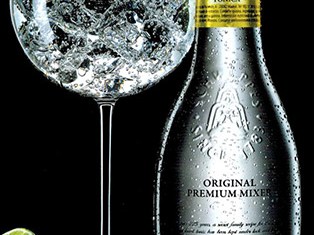Pisco: colourless, fragrant and delicately seductive
“Pisco is perfectly colourless, very fragrant, extremely seductive, strong…But delicate and with a remarkable fruity flavour” Thomas W.Knox
Pisco is a hard liquor with personality, a distillate that might remind you of Cognac or Armagnac that is produced from the grape’s juice. By a careful selection, development and a long history, today it is known as one of the most important Peruvian drinks.

Origin of Pisco
Pisco is linked to the Peruvian identity and the pre-Columbian language. Piskos were the people who were responsible of manufacturing pottery to store drinks; even these containers were also called piskos. However, the Pisco we now know in Dry Martini came from the creation of Lima and the wine culture that existed in the pre-Columbian times.
The celebrations with hard liquor from grape were introduced to the American culture in 1613. In any way, back in the 1640, the consumption was common; in fact, it began to be a resource for external relations and exchanges with the United States. Consequently, Villa de Pisco was created in 1640, in order to exchange Pisco and other products with other countries and territories. From this moment, the drink begins to acquire shapes and combinations that today are so familiar to us, until it permanently became a National Patrimony in Peru.
Types of pisco
In actuality, we have been able to distinguish three types of Pisco, pure, acholados and green grape juice. The first one is made by one single type of grape. Acholados involve more variants. The most common way to develop it is by using two or more pure Piscos separately and then mixing the result and obtaining that satisfying cocktail, you have always wanted. Finally, the green grape juice is the variety in which distillation occurs before all the sugar is converted into alcohol.
Pisco: a Peruvian cultural identity
To proceed to combinations and elaborations, you will need a mixture of science and art. A qualified Pisco requires good grapes but it is also important to prepare cocktails with precision, love and care.
A classic drink in the Peruvian culture is the punch of Independence that has become a ritual during the Independence Day, July 28. This cocktail is originally from India, however, it arrived to Peru in the early nineteenth century and it is used to celebrate the change of government, on July 28, every five years. The glass used for this drink, in particular, is a type called “Hot Drink Cup”.

Pisco Sour By Javier de las Muelas
Another of the most refreshing, representative and most typical combinations is “Pisco Sour”. This cocktail has become a drink used in many celebrations and events, such as the Anniversary of Lima, on the 18th January. About this cocktail, we know that Victor V.Morris, an Anglo-Saxon and owner of the Morris Bar, created it. Since that time, it has been exported to other bars in the Peruvian town, to become one of the most renowned drinks in the upper class. However, today we can say that it is a drink of popular use. On the other hand, the Peruvian’s sweet tooth gave life to a cocktail called “Algarrobina”, in which Pisco is mixed with a substance with that same name, extracted from locust beans. The result is a drink that includes several ingredients like cocoa butter, milk, egg yolk and cinnamon.

Pisco Beer By Javier de las Muelas
Despite the dispute between Chile and Peru to incorporate this drink to their cultural identity, Pisco is originally from Peru. Chileans were the ones that copied its elaboration; however, they managed better the development and marketing of the product. However, what is the best way to drink it? Having in mind the traditional and ancient style, with mud jars and enjoying the first flavours, allowing the next ones to get better and better.
SUBSCRIBE TO OUR NEWSLETTER
Do you want to receive on your email all the news of DRY Martini?
Subscribe to our newsletter and always be aware!





